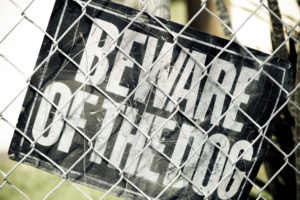The Environment, Food and Rural Affairs Committee’s report Controlling Dangerous Dogs calls for a full-scale review of current dog control legislation and policy to better protect the public. The report was published on 17 October 2018.
The full report can be found here.
Is there a problem with controlling dangerous dogs?
According to the Committee there is.
In 1991 the Dangerous Dogs Act outlawed certain breeds and types of dog to protect the public from attacks. Since then the number of yearly fatalities has continued to rise.
Hospital admissions for dog attacks have increased by 81% since 2005. An unacceptably high number of victims suffer horrific life-changing injuries in these incidents. Even where no physical injury occurs, dog aggression can cause significant psychological distress.
At the same time, too many harmless dogs are being destroyed every year because they are banned and cannot be re-homed, even if they are well tempered and pose no risk to the public.
The Government has maintained that the breed ban is essential to public safety, arguing that these prohibited dogs pose an inherent risk. This inquiry found insufficient evidence to substantiate this claim.
The Committee agrees with the Government that it would be irresponsible to amend the breed ban immediately without adequate safeguards, but ‘that does not mean that the Government should continue to sit on its hands.’
The report argues that changing the law on Breed Specific Legislation is desirable, achievable, and would better protect the public, and that ‘…the Government’s lack of action on this front shows a disregard for dog welfare.’
What action needs to be taken?
The report makes the following recommendations in relation to controlling dangerous dogs:
- immediately remove the prohibition on transferring a banned dog if it has been behaviourally assessed by experts and found to be safe. This would prevent the needless destruction of friendly animals that could be safely re-homed;
- commission an independent evidence review to establish whether the banned breeds or types present an inherently greater risk than any legal breed or cross breed;
- commission a comprehensive review of existing dog control legislation and policy, with a view to developing an alternative model that focuses on prevention though education, early intervention, and consistently robust sanctions for offenders;
- ensure all future strategies are developed with a full and transparent commitment to evidence-based policy-making. If the independent evidence review concludes there is insufficient evidence to support the Government’s position on Breed Specific Legislation, this aspect of the law should be revised;
- introduce mandatory training and education courses for minor dog offences, similar to speed awareness courses for drivers;
- support wider dog awareness training for schoolchildren, and run a targeted awareness campaign for dog owners and the general public on safe human-dog interaction;
- increase support for local authorities and police forces to ensure they have the capacity to fulfil their duties; and
- engage with international partners to learn lessons and best practice from abroad.
Will anything change as a result of this report?
It remains to be seen how if at all, the government will respond to this latest report.
Sentencing for dangerous dogs’ offences already results in severe sentences, but the focus here is more on trying to ensure that harm is not caused in the first place.
How we can assist?
Dog owners are often unfairly stigmatised and face severe punishment if found guilty of dangerous dog offences.
The legislation is extremely complex, but our solicitors have an in-depth knowledge of this area of law.
If you face investigation or prosecution it is important that you seek early advice.
Any interview may well take place with the suspect being a volunteer. This does not mean that the police are taking the case less seriously.
More information about this type of interview can be found here.
Contact your nearest office
We provide nationwide advice and representation in criminal law matters from our offices across the East Midlands.
You can find your nearest office here.

Alternatively you can use the contact form below.







